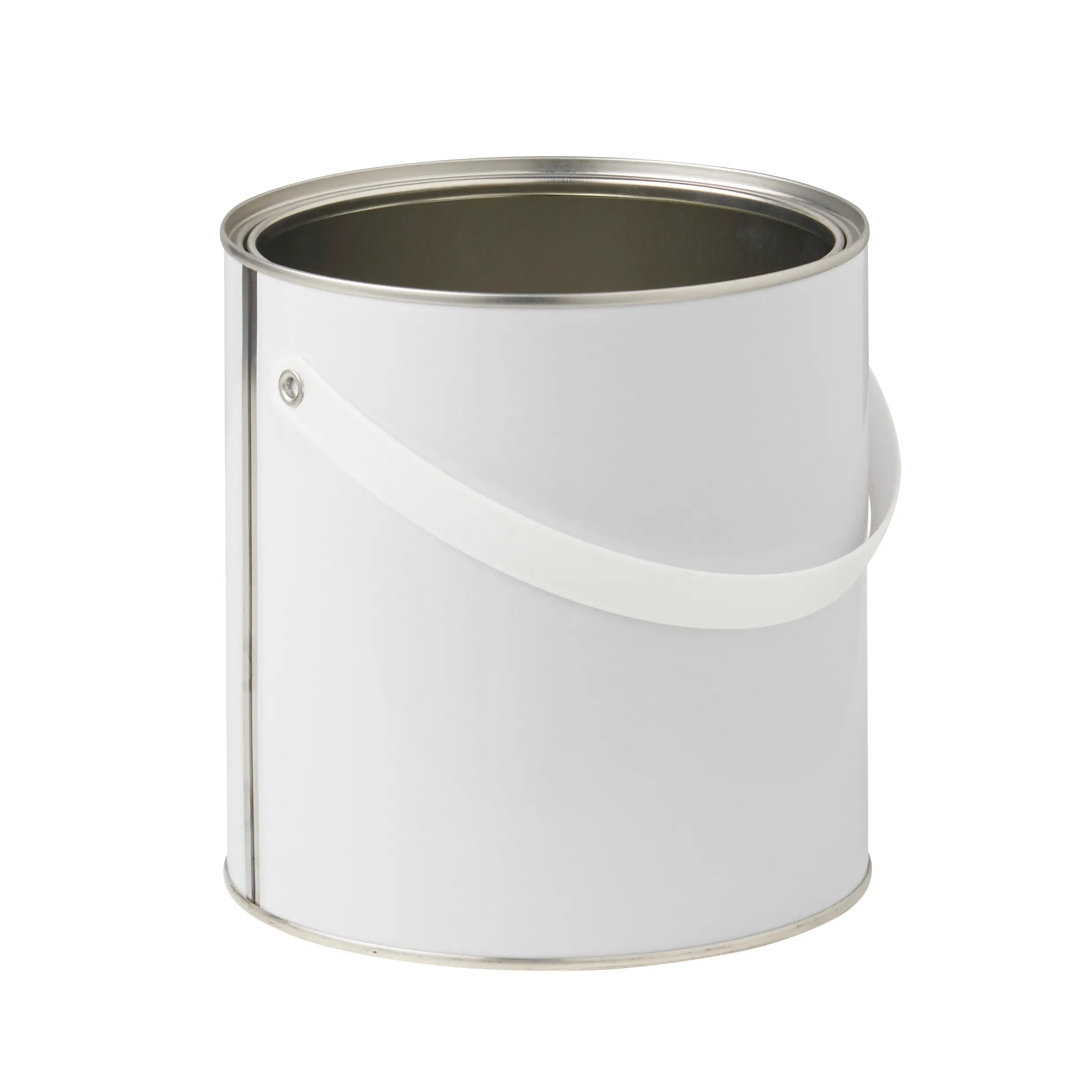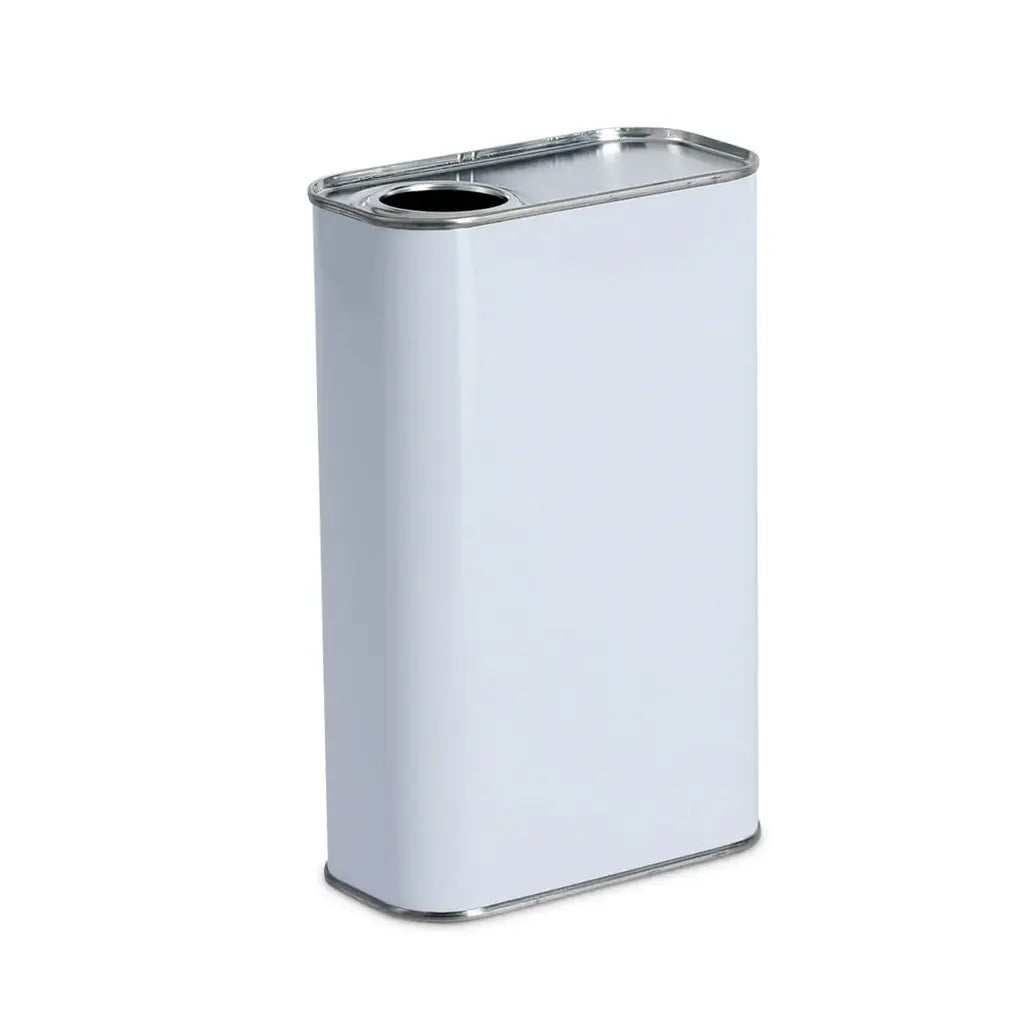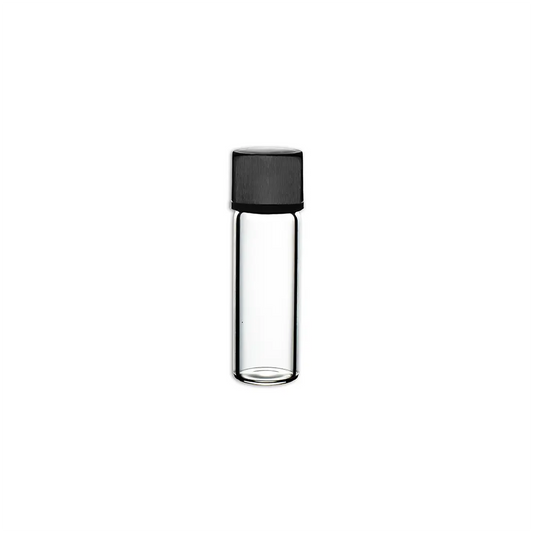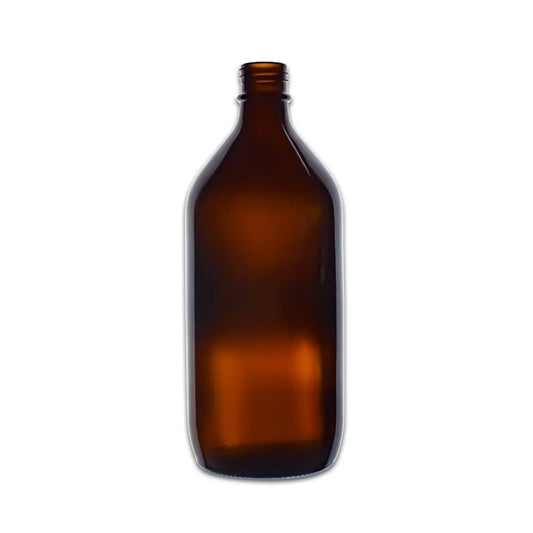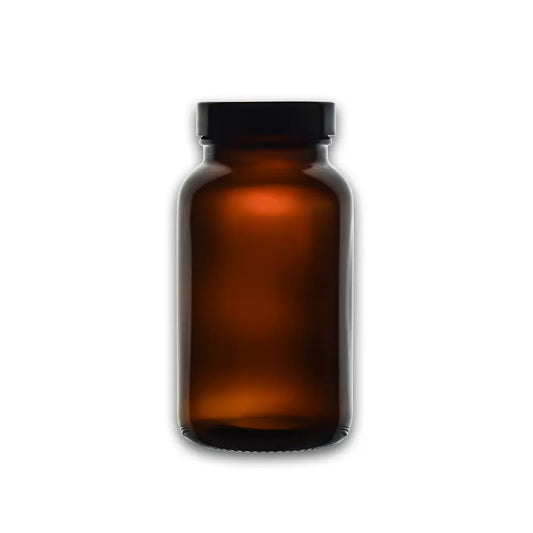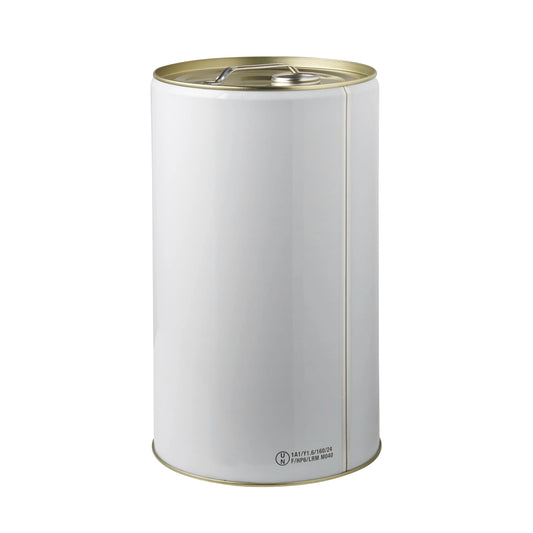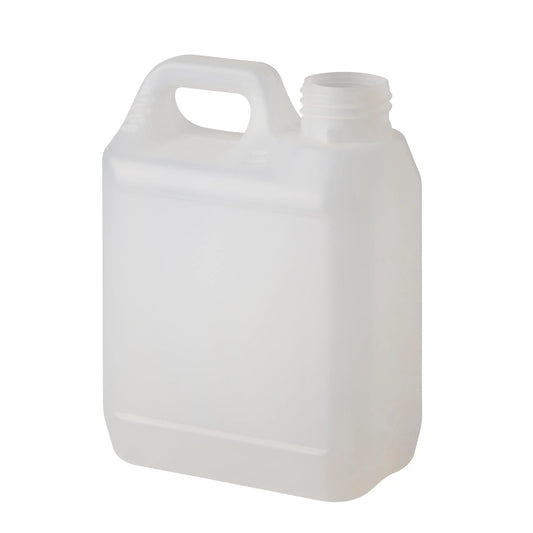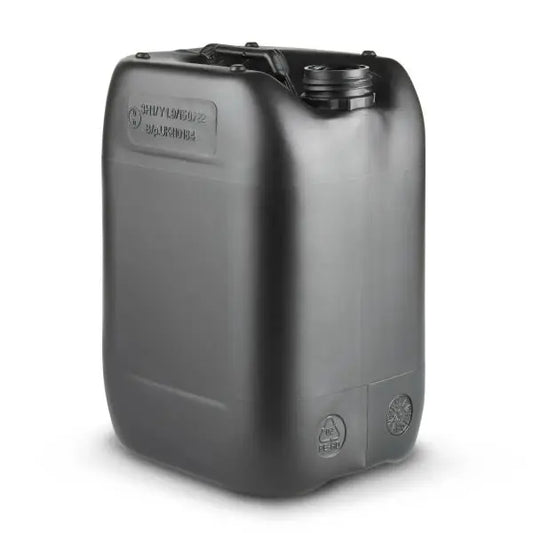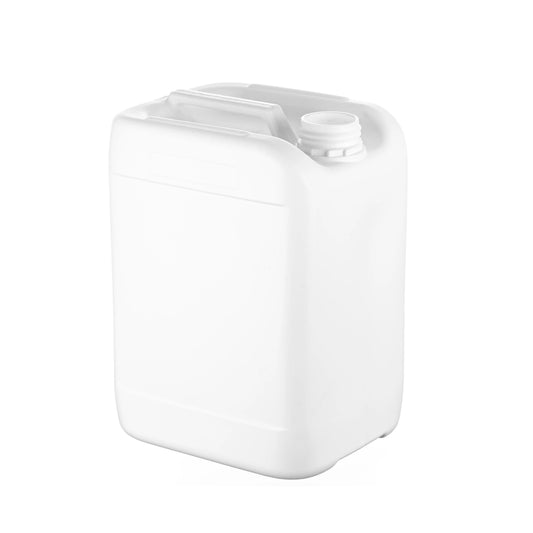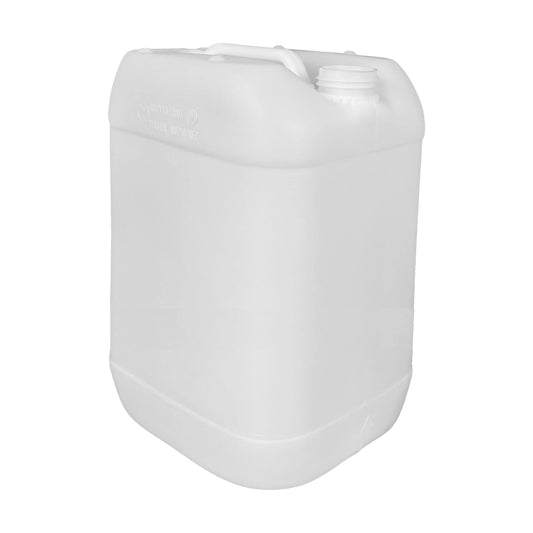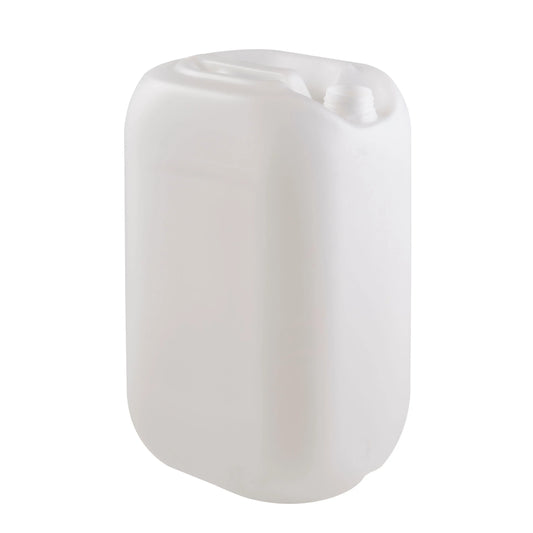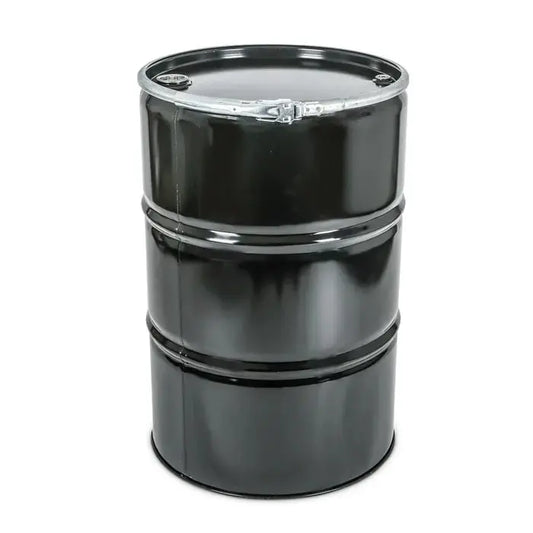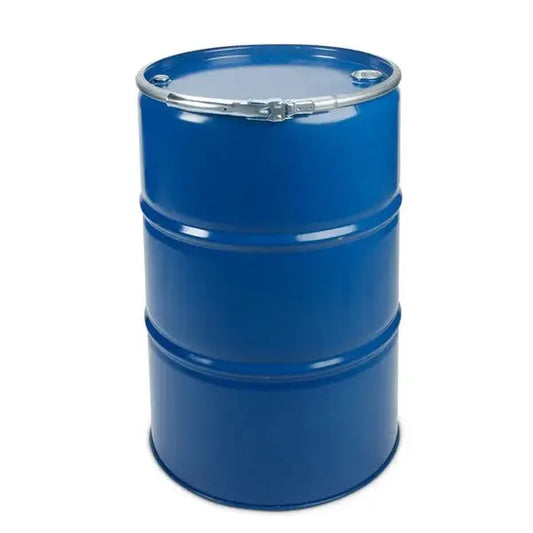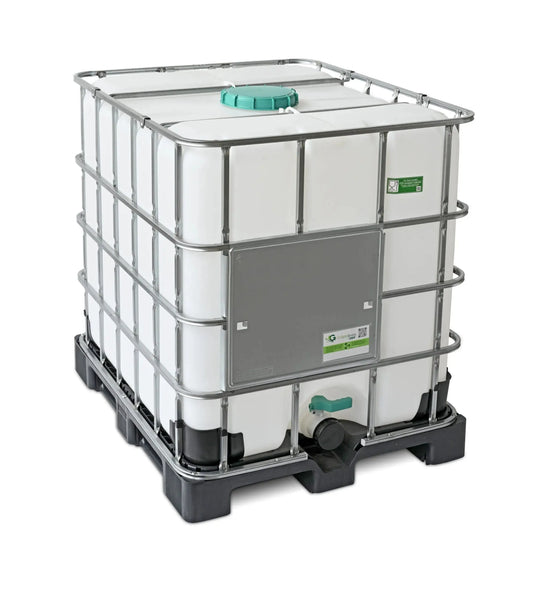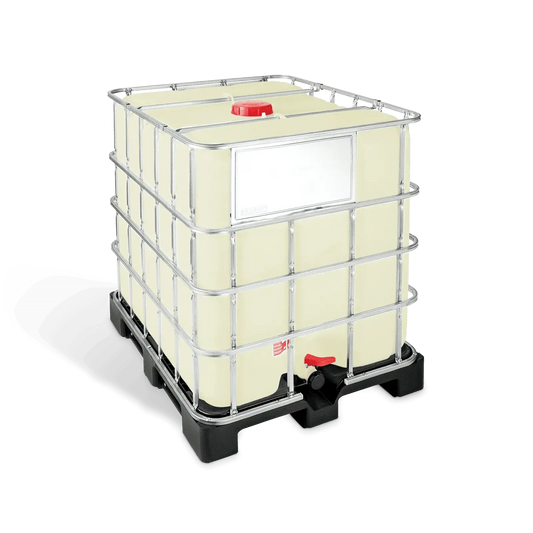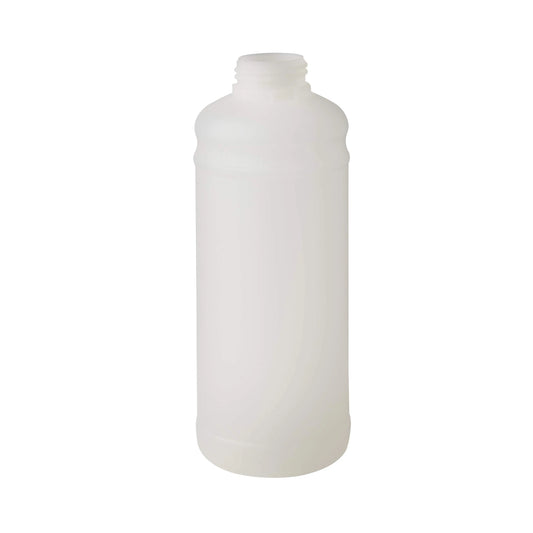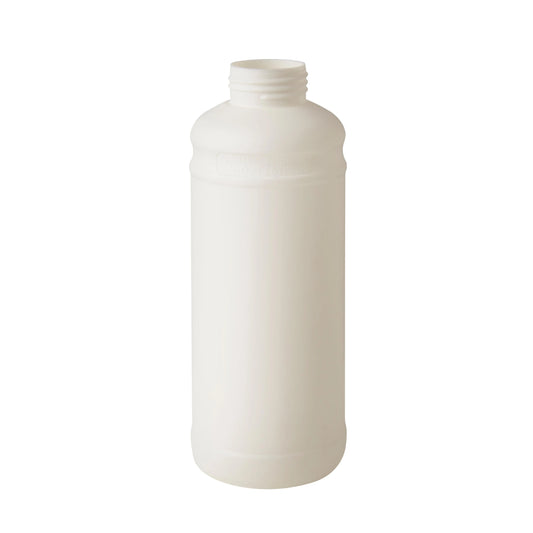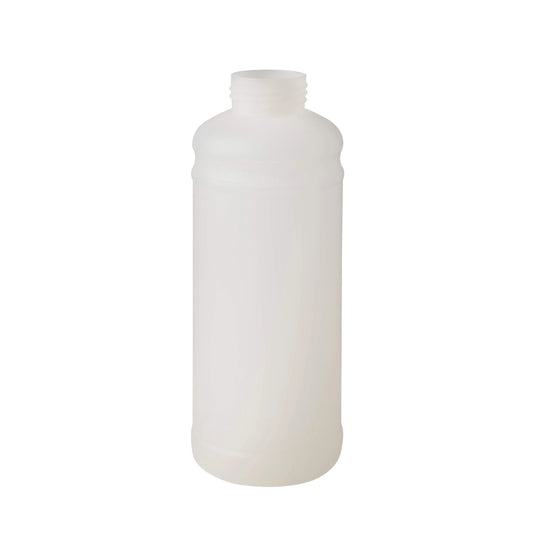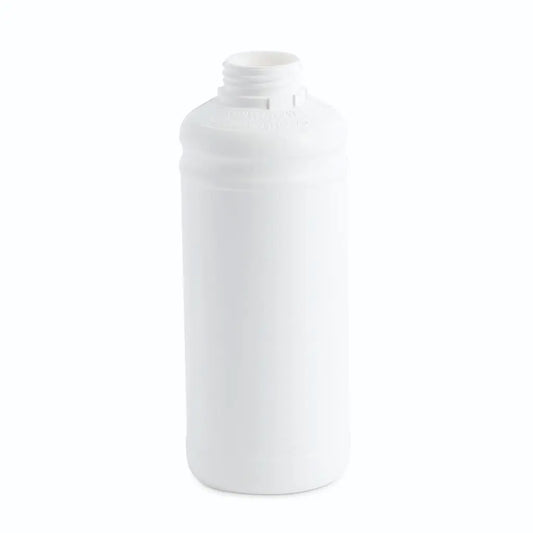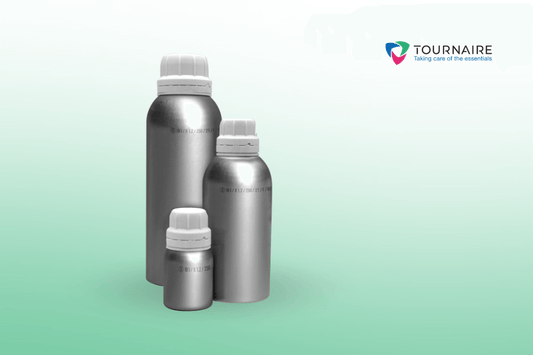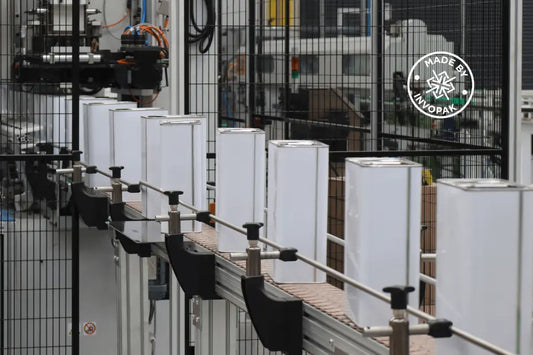It's easy to take packaging for granted, but it's essential for getting products to market safely and securely. Packaging also has practical and financial implications for businesses. The type of packaging you choose will determine the shelf-life of your product, how safe and secure it is when being shipped and stored, customer perception and, ultimately, profit margins. Choosing packaging that matches your needs is essential for any product-led business, whether that's paint, coatings, detergent or curry sauce. In this ultimate guide to rigid packaging, we'll take a look at the different types of packaging available, so you can make a more informed choice and find the packaging that's right for your business.
What is Rigid Packaging?
Rigid packaging is characterised by its sturdy and inflexible structure and it's usually made from hard materials such as glass, plastic or metal. These materials offer strength, durability, and resistance to external factors such as moisture, light and temperature fluctuations. Rigid packaging is designed to provide maximum protection to its contents, keeping them safe during handling, transportation and storage.
Rigid packaging covers various rigid containers and includes everything from lever-lid paint tins to plastic buckets, aluminium bottles to blue plastic barrels. Rigid packaging also comes in a vast range of sizes, from a 19ml aluminium fragrance bottle to a 220-litre open-top plastic drum.
Whatever products you need to ship or store, there will be a rigid packaging solution. Many forms of packaging have become the industry standard, such as the lever lid tin for paints and coatings or plastic jerry cans for cleaning detergents.
Plastic buckets are one of the most common types of rigid packaging. They come in a wide range of sizes and are a great, practical choice for storing everything from paints and powders to foodstuff and animal feed.
Wholesale plastic buckets are practical for a wide range of industries
Plastic Jerry Cans are ideal for liquids, chemicals, solvents and detergents. They are often used for bulk shipping and storage and can be fitted with pelican spouts or tap caps for quick and easy pouring.

Wholesale plastic jerry cans are a type of plastic rigid container
Blue barrels are brilliant for bulk shipping and storage. The lid and ring latch closure provide a water-tight seal and the robust design makes them the ideal rigid container for industrial use. They are UN-certified suitable for export. They are available in four sizes; 30 litres, 60 litres, 120 litres, and 220 litres.

Open top drums are UN-Approved for international shipping
Is Rigid Packaging the Same as Flexible Packaging?
Rigid packaging and flexible packaging are very different, and they each have distinct qualities that make them suitable for different uses.
Flexible packaging is made from lightweight materials, such as paper, plastic sheeting, foil and films, and is available in various styles including; bags, pouches, wraps, liners and sachets. It can be heat-sealed or pressure-sealed protecting the contents from air and moisture and keeping them fresher for longer. Flexible packaging is a cheap and effective way to store products and is commonly used for foodstuffs such as; coffee, bread, cheese or sauces.
Flexible packaging is available in a wide variety of shapes and sizes. Customer convenience is central to this type of packaging and useful features such as resealable closures, hang holes, handles or tear notches offer speed and ease for the end user.
One of the biggest issues with flexible packaging is that it is usually single-use, and because it often has multiple layers and component parts it can be difficult to recycle. The industry is looking at ways to make this type of packaging a more sustainable option, such as using compostable materials, and many supermarkets now offer soft plastic recycling in stores.
Flexible packaging also offers less puncture or tear protection compared to rigid packaging so products must be shipped and stored carefully until they reach the shop shelves.

Single-use supermarket packaging is often flexible packaging such as plastic wrap or pouches
Why is Rigid Packaging Preferred?
Rigid packaging offers a range of benefits over flexible packaging;
- Durability - Rigid containers made from steel, aluminium and hard plastic offer the highest level of protection.
- UN-certified - Rigid packaging that is UN-certified has passed a range of durability tests to ensure it is strong enough for wholesale shipping and export.
- Food-Grade - Packaging used for food and beverages needs to be certified for food use. Tamper-evident designs offer an extra layer of protection, which is important for customer confidence too.
- Better for Bulk - Large volumes are heavy so they need to be stored in strong, rigid containers.
This is why rigid containers are a great packaging solution for various products, from paints and solvents to animal feed and cooking oils.
Metal packaging includes paint tins, metal pails and aluminium bottles. It is one of the most durable types of packaging and is ideal for chemicals, paints, solvents and high-value products.

Lever lid tins can be lacquered or unlacquered
Aluminium bottles offer the ultimate protection for high-value goods. They were originally designed for the perfume industry, and are still the best rigid packaging choice for essences, fragrances and flavourings. Aluminium is strong and light, offering excellent puncture resistance and protecting the contents from light, air and moisture damage.

Aluminium bottles offer a high level of packaging protection
Steel drums are available in lacquered and unlacquered finishes, so they can be used for solvent-based or water-based liquids. They are UN-Approved so they are ideal for bulk shipping oils, paints and chemicals.

Steel drums are designed for safe bulk shipping
Glass containers are the third type of rigid packaging. Glass is typically used for laboratory, pharmaceutical, cosmetic and food containers. Glass recycles forever with no loss in quality, and because glass provides an impermeable barrier, products are protected against contamination.
Glass Vials are small screw top glass tubes, which are commonly used for sampling and testing. Lab-grade glass can be heated, is resistant to chemicals and will not degrade, which means samples stay pure.
Glass Bottles are a practical option for containing powders, oils and liquids. Clear soda glass is ideal for showcasing the product, whilst opaque, amber glass protects the contents against UV-damage, and is a good option for storing pigments and other light-sensitive products.
Glass containers are ideal for laboratory and pharmaceutical use
Rigid vs Flexible Packaging: Which is Right for You?
When choosing between flexible and rigid packaging, it’s important to consider your product’s specific needs. While rigid industrial packaging provides a strong, inflexible barrier that protects products from external factors like moisture and contamination, flexible packaging offers greater versatility and lower material costs. Rigid packaging materials, such as hard plastic and metal, are often the preferred choice for products requiring durability, such as chemicals, food items, and industrial goods.
Rigid packaging is ideal for bulk storage and shipping, whereas flexible packaging is more lightweight and convenient for consumer goods. The decision between rigid vs flexible packaging depends on the level of protection your product requires, as well as factors like cost and sustainability.
What are the Advantages of Rigid Packaging Materials?
The extra strength and durability of rigid packaging means it offers a much higher protection level compared to soft, flexible packaging. Rigid packaging that's made from steel, aluminium or hard plastic won't tear and is puncture-resistant and pest-proof, making it the best choice for storing and transporting a wide range of goods safely.
Durability is particularly important when products are in transit. There are risks every time products are loaded and unloaded, as well as when they are in the back of a lorry or shipping container. Packaging needs to withstand being dropped, bumped and shaken. Hard, rigid packaging offers the highest level of protection for your goods from the outside world.
There are also practical reasons why bulk goods must be stored in rigid packaging. Industrial quantities are heavy so containers need to be made of rigid materials so they are strong enough to hold the weight. IBCs, metal and plastic barrels are UN-certified for bulk shipping. Shipping using UN-approved containers can be a regulatory requirement when exporting goods. A reputable packaging supplier will be able to supply UN certificates, and the packaging itself should be stamped with the UN code.
Minimising contamination risk is particularly important for food and beverage goods. Rigid packaging is puncture and tear-resistant and when sealed with tamper-proof closures, is the safest choice for consumable goods.
Rigid packaging is also a great choice for consumers because it protects the goods, and ensures they stay in peak condition until they reach the customer. Because rigid packaging is made of two parts, the container and the closure, they can be opened, closed, resealed and reused, making them a more practical option than single-use containers.
Industrial printing options, such as IML that are part of the manufacturing process, save time and provide a professional finish. Printed packaging is an excellent way to elevate your brand and make your product stand out from the crowd.
Intermediate Bulk Containers (IBCs) are UN-approved and designed for storing and transporting liquids in large quantities. The rigid plastic is encased in a metal frame, offering the twin benefits of practicality and durability.

IBC tanks are the ultimate piece of bulk rigid packaging
What is the Most Efficient Packaging Shape?
For efficient shipping and storage, square and rectangular containers are the best rigid containers. This is because they can be stored edge to edge, so there is no wasted space. Changing the shape of the bucket you use can improve your transport efficiency because more buckets can be fitted on each pallet.
An extra 50 buckets can be fitted on each pallet if 5-litre square buckets are used instead of round, for example. Rectangular tins, instead of conical or round tins, are the best option when space efficiency is the prime issue.
Rounds continue to dominate the packaging industry mainly because a circle is the strongest shape. This is because stress is distributed equally along the ar instead of being concentrated at any particular stress point. The other advantage to drums, barrels and round shapes is that there are no corners, so products are easier to mix since there aren't any crevices.

Jerry cans are designed for space-efficient storage
How Much Does Rigid Packaging Cost?
The cost of rigid packaging is determined by a number of factors, including; material cost, level of customisation, volume, market conditions and location.
Material Cost
Rigid packaging costs more than flexible packaging because it's made from more expensive raw materials. Metal and plastic simply cost more than paper and cardboard. In order to have the correct level of rigidity it also uses more raw materials per unit. A foil chocolate wrapper needs a tiny fraction of the aluminium needed to manufacture a bottle.
Customisation
The level of design complexity or customisation will have an impact on price. Custom printing or labelling will incur set-up and design fees, although these are usually a one-off cost. Special sizes or shapes will need customised moulds or tooling and are the most costly option, off-the-shelf packaging solutions will always be cheaper than a custom design.
Volume
The unit price of packaging also varies greatly according to volume. Higher production volumes typically result in economies of scale, leading to lower per-unit costs. Bulk purchasing and long-term contracts with suppliers can also help businesses negotiate better pricing or payment terms. The step up from being a retail buyer to a business account buyer will result in the biggest cost savings. Packaging wholesalers operate a sliding price scale, so buying in larger, bulk quantities is the cheapest way to buy packaging. Opening a business account with a trusted packaging supplier may also offer the possibility of credit terms, helping larger businesses manage their cash flow.
Market Conditions
Market demand, availability of raw materials, and competition among suppliers can impact the cost of rigid packaging. This was seen most recently as packaging suppliers were severely disrupted as a result of the Covid pandemic and war in Ukraine.
Location
Geographic location will affect packaging prices since it will determine the transport costs and whether any import or export fees are due.
How Much Rigid Packaging Do I Need?
The frequency and size of your packaging order will depend on the speed and quantity of your product turnover. It will also depend on how much storage space you have available, particularly if your order includes bulky or un-stackable items, such as plastic barrels or lever lid tins.
Some products have longer lead times, particularly if they are custom printed or need to be imported from the manufacturer. This is why it's good to plan ahead or stock up so that you're never short of packaging at that crucial moment!
At Invopak we sell in packet and pallet quantities, making it easy for you to order exactly what you need. The pack and pallet quantities and stock levels are listed for each product on our online storefront so you can see this useful information at a glance.
If you need packaging advice or would like to find out about bespoke label and print options then why not get in touch with our team of experts, we're always happy to help.
